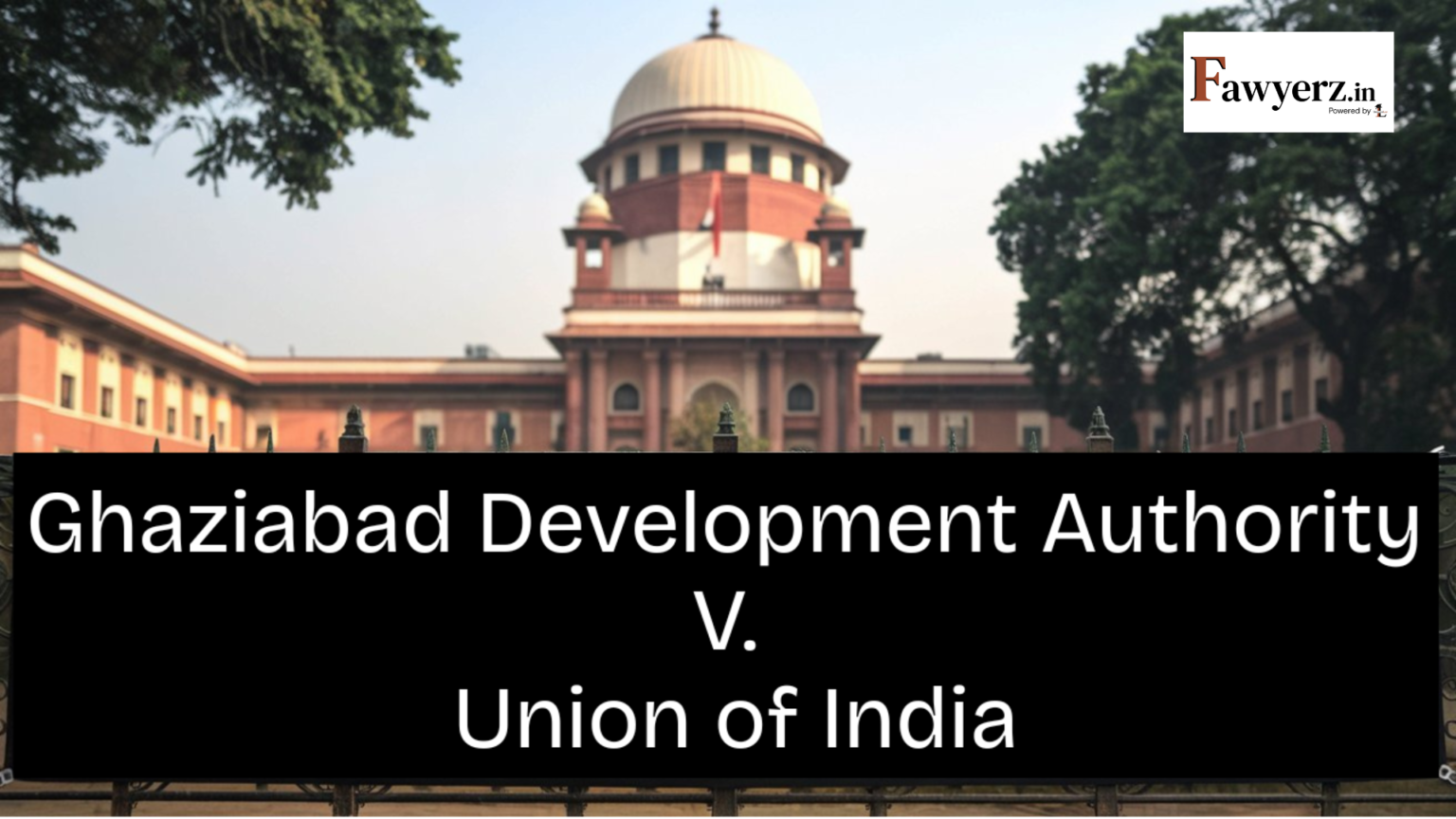Ghaziabad Development Authority v. Union of India 2000 (Case Summary)

The case revolves around the Ghaziabad Development Authority’s (GDA) failure to deliver possession in its housing schemes, specifically raising the issues of whether compensation for mental agony can be granted and whether interest can be awarded in the absence of contractual or statutory obligation.
Table of Contents
ToggleFacts of Ghaziabad Development Authority v. Union of India
- The Ghaziabad Development Authority (GDA) issued public brochures announcing various housing schemes.
- Applicants submitted applications along with earnest money to participate in the schemes.
- However in several instances, GDA failed to deliver possession or caused inordinate delay in the execution of the schemes.
- Aggrieved applicants approached different forums alleging unfair trade practices and seeking redressal for non-fulfilment of promised services
Issues framed
- Whether compensation could be awarded for mental agony and emotional distress caused to the claimants by the Ghaziabad Development Authority (GDA)?
- Whether the payment of interest could be directed in the absence of any contractual or statutory provision requiring such payment?
- If interest was permissible, what would be the just and appropriate rate of such interest?
Subordinate Court Judgment
Monopoly and Restrictive Trade Practices Commission (MRTP Commission)
The MRTP Commission found the GDA at fault for not providing the promised plot, awarding ₹50,000/- for mental agony and directing a refund with 18% interest in certain cases. In a flat allotment case, the claimant was offered with an option to either accept the flat or receive a refund with 18% interest.
Consumer Disputes Redressal Forums
The Consumer Forums, in similar cases, directed the GDA to refund the deposited amounts with interest at 18% per annum due to delays or failures in fulfilling schemes.
High Court of Judicature at Allahabad
The High Court directed the GDA to refund the deposited amounts with interest at the rate of 12% per annum, calculated from the date of deposit until the date of refund.
The Supreme Court heard all the appeals together arising out of a common question of law.
Judgment of Ghaziabad Development Authority v. Union of India
The Court analysed the application of contract law, administrative law, Section 34 CPC, Consumer Protection Act, MRTP Act and UP Urban Planning Act in determining compensation and interest.
The Hon’ble Supreme Court observed that compensation for mental agony is not generally awarded in contractual matters unless the contract is aimed at providing emotional satisfaction or peace of mind. In cases involving land allotment, which are commercial in nature, such claims do not qualify. Therefore, the award of compensation for mental distress was found to be legally unsustainable.
Further the Court, reiterating its earlier stance in Sovintorg (India) Ltd. v. State Bank of India (1999) 6 SCC 406, opined that despite the absence of a contract or statutory provisions, interest could be awarded based on principles of justice, equity and good conscience. The Court further reduced the interest from 18% to 12% per annum, considering it fair and just.
The compensation of ₹50,000/- awarded for mental agony by the MRTP Commission was set aside. The award of interest was upheld, grounded in equitable considerations, despite the absence of contractual or statutory provisions. The Court reduced the 18% per annum interest rate awarded by the MRTP Commission and Consumer Forums to 12% per annum, which was considered just and reasonable. The judgment of the Hon’ble High Court of Judicature at Allahabad, which had already fixed the rate of interest at 12% per annum, was accordingly affirmed.





